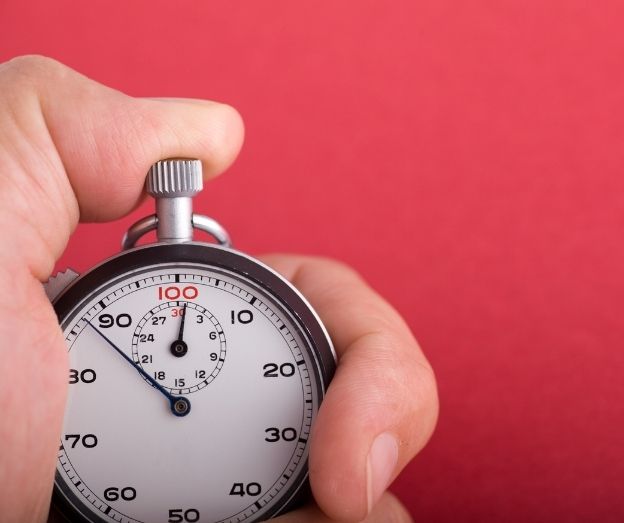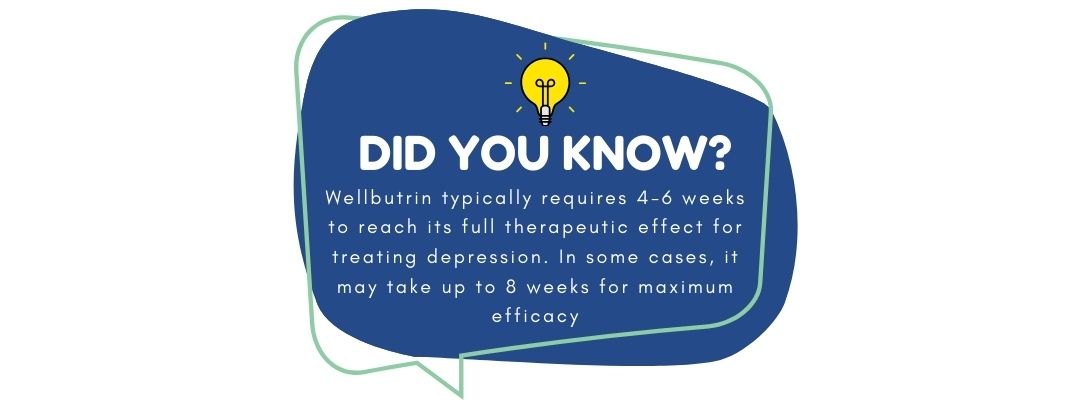How Long for Wellbutrin to Work: Understanding the Timeline for Effectiveness
How long for Wellbutrin to work. Starting a new medication can bring both hope and uncertainty, especially when it comes to antidepressants like Wellbutrin. Many people wonder how long it will take to feel its effects. Generally, users may start to notice improvements in their symptoms within two weeks, but it can take up to six weeks to experience the full benefits of the medication. Understanding this timeline can help set realistic expectations for those looking to manage their depression or other conditions.
Wellbutrin works differently for everyone. Factors such as dosage, individual health needs, and other medications can affect how quickly it starts to work. Patients are encouraged to keep track of their progress and communicate with healthcare providers about any changes they notice during the treatment period.
By knowing what to expect, patients can approach their treatment with confidence. Educating oneself on the timeline and progress of Wellbutrin can lead to a smoother experience during this important time.
Key Takeaways
- Wellbutrin might show effects in about two weeks.
- Full benefits can take up to six weeks to achieve.
- Individual factors can influence the medication’s onset of action.
Understanding Wellbutrin
Wellbutrin is a medication used primarily to treat depression and assist with smoking cessation. It operates differently from many other antidepressants, affecting specific neurotransmitters in the brain.
What Is Wellbutrin?
Wellbutrin is the brand name for bupropion, an antidepressant that is often prescribed for major depressive disorder (MDD). It is also used to help people stop smoking through its formulation, which reduces cravings and withdrawal symptoms.
Patients should note that Wellbutrin comes in different forms: Wellbutrin SR (sustained release) and Wellbutrin XL (extended release). These variations alter the speed and duration of the medication’s effects, influencing how quickly it works. Wellbutrin’s unique mechanism helps in improving mood and decreasing anxiety without the common side effects associated with other antidepressants.
Pharmacological Profile
The pharmacological action of Wellbutrin involves inhibiting the reuptake of certain neurotransmitters, specifically norepinephrine and dopamine. This mechanism helps to increase the levels of these chemicals in the brain, which can enhance mood and motivation.
Wellbutrin is distinctive because it does not significantly affect serotonin, a neurotransmitter targeted by many other antidepressants. This profile makes it a suitable choice for patients who may not tolerate traditional SSRIs.
Patients may experience varied timelines for effectiveness. Research indicates that effects can begin within the first two weeks, with noticeable improvements typically around four to six weeks. Individual factors such as dosage, symptom severity, and concurrent conditions can influence response time.
Efficacy Timeline: How Long for Wellbutrin to Work
Understanding how long it takes for Wellbutrin to begin working is key for those considering this treatment. This section focuses on the initial effects one might notice and when the medication reaches its peak efficacy.
Initial Effects
Patients may start to notice initial effects of Wellbutrin within 1 to 2 weeks after starting treatment. While some individuals feel improvements early, others may not notice any changes right away.
Common early signs can include better energy levels or slight improvements in mood. It is important for patients to remain in contact with their healthcare provider during this period to monitor any side effects, which can vary from person to person.
Around the 2-week mark, some users report reduced anxiety or improved focus, suggesting that the medication is beginning to take effect.
Peak Efficacy
Peak efficacy of Wellbutrin usually occurs between 4 to 6 weeks after starting the medication. At this stage, the full benefits in treating depression and other conditions become clearer.
Patients often report significant changes in mood, motivation, and overall energy levels. Some may experience the best results around the 6-week mark, making it crucial for them to assess their progress with a healthcare provider.
During this time, adjustments to dosage may be considered based on individual responses. Regular follow-ups are important to ensure that the treatment is effective and safe for the patient.
Factors Influencing Onset of Action
The onset of action for Wellbutrin can vary based on several key factors. These include how the medication is dosed and administered, individual biological differences, and any concurrent medications being taken. Each of these elements plays a significant role in how quickly a person may feel the effects of Wellbutrin.
Dosage and Administration
The way Wellbutrin is dosed and administered has a direct impact on its onset of action. Different formulations, such as Wellbutrin SR (sustained release) and Wellbutrin XL (extended release), affect how quickly the medication is released into the bloodstream.
For instance:
- Wellbutrin SR is taken twice daily and releases medication faster.
- Wellbutrin XL is usually taken once daily and releases medication more gradually.
Additionally, starting doses may differ based on the patient’s condition and history. Adjustments may be needed over time, which can also affect how quickly a person responds to the treatment.
Individual Biological Factors
Each person’s unique biology influences how Wellbutrin works. Genetic factors can affect how a person metabolizes medication. Some individuals may have faster metabolisms, leading to quicker onset times, while others may metabolize more slowly, delaying effects.
Age, weight, and general health also play roles.
- Age can affect liver and kidney function, impacting drug clearance.
- Weight may influence how much medication is needed for an effective dose.
These individual differences highlight the importance of a personalized approach when beginning treatment.
Concurrent Medications
Taking other medications alongside Wellbutrin can also influence its onset of action. Certain drugs may interact with Wellbutrin, either speeding up or slowing down its effects.
For example:
- Antidepressants and other medications that affect neurotransmitter levels can change how quickly Wellbutrin works.
- Stimulants might enhance the overall effects of Wellbutrin.
Conversely, drugs that inhibit metabolic enzymes in the liver can lead to increased concentrations of Wellbutrin, potentially causing side effects. Careful monitoring and communication with a healthcare provider are crucial when multiple medications are used.
Source: Mayo Clinic
Monitoring and Managing Expectations
When starting Wellbutrin, it is essential to monitor progress closely and have realistic expectations. This helps ensure that changes in mood and energy levels are addressed promptly and effectively.
Clinical Follow-Up
Regular clinical follow-ups are crucial for individuals beginning Wellbutrin. These appointments allow healthcare providers to assess the medication’s effectiveness and any side effects.
Patients should schedule check-ins every 4 to 6 weeks during the initial treatment phase. During these visits, providers will evaluate mood changes, energy levels, and any emerging side effects.
Patients should keep track of their symptoms and share them during appointments. This information is vital for making necessary adjustments to the treatment plan.
Adjusting Treatment
Adjusting treatment may be necessary if the desired effects are not achieved. If symptoms do not improve after several weeks, a healthcare provider might consider an increased dose or switching to another medication.
Patients should communicate openly about what they experience while taking Wellbutrin. This dialogue helps providers make informed decisions about potential adjustments.
It’s also important to remember that changes won’t happen overnight. Some may take a few weeks to notice positive effects. Being patient and maintaining regular communication is key to successful treatment.
Frequently Asked Questions
For those considering Wellbutrin, many questions arise regarding its effectiveness and timeline. This section addresses specific queries about how long it takes to work and what to expect during treatment.
What are the typical timelines for Wellbutrin to demonstrate effectiveness for depression?
Wellbutrin may start to show effects for depression within 1 to 2 weeks. However, it can take up to 6 to 8 weeks for its full benefits to be observed.
Can one observe immediate effects with Wellbutrin, or does it take time?
Some individuals may notice mild effects in the first week, but significant changes typically take time. Most patients experience noticeable improvements after several weeks.
What improvements should be expected when Wellbutrin begins to work for ADHD?
When Wellbutrin starts to take effect for ADHD, individuals may notice better focus and concentration. Increased impulse control and reduced hyperactivity can also be observed.
How do I know if Wellbutrin is not working as intended for my treatment?
Signs that Wellbutrin may not be working include persistent symptoms of depression or ADHD. If there is no noticeable change after 6 to 8 weeks, it may be time to consult a healthcare provider.
What are the indications Wellbutrin is starting to have an effect?
Patients may feel an uplift in mood, increased energy levels, or improved concentration. Reduced feelings of sadness or hopelessness can also indicate that the medication is starting to work.
For those using Wellbutrin for weight loss, over what period can changes typically be observed?
Individuals using Wellbutrin for weight loss may start to see changes within a few weeks. However, optimal results often take several months and should be accompanied by lifestyle changes.
Conclusion
How long for Wellbutrin to work? The timeline for Wellbutrin to work varies among individuals, but understanding the general trajectory can help set realistic expectations. While some may notice early improvements in energy and mood within the first two weeks, it often takes 4 to 6 weeks to experience the full therapeutic benefits. Factors such as dosage, individual biology, and concurrent medications all play a role in how quickly Wellbutrin takes effect.
Regular communication with a healthcare provider is essential during this process. Monitoring progress, addressing side effects, and adjusting treatment when necessary ensure the best possible outcomes. Patience and consistency are key, as Wellbutrin’s effectiveness builds over time.
By staying informed and proactive, individuals can confidently navigate their journey with Wellbutrin, making it a valuable step toward improved mental health and well-being.





